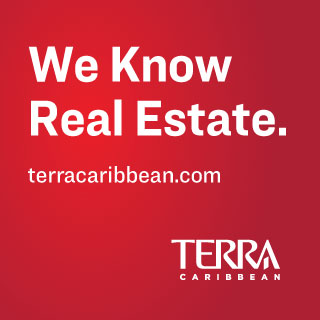First-Time Buyers. The Reality of Property Ownership: Grenada
Buying property is typically the single largest purchase you will ever make, so above all else you should be prepared. The journey to property ownership is an exciting one, but it is not something that you want to enter into with blindfolds on. As most people who are experienced in the subject will tell you, buying property for the first time can be an emotional, intimidating and often times, quite a lengthy process. Therefore, it is important to understand the various steps involved in the process, all of the requirements needed and the realistic timeframe it takes. Understanding these components will really help to curb the anxiety and emotions involved, because you’ll know what you’re getting into. Don’t underestimate the cost, timeframe and work involved. Working with experienced real estate agents who will guide you through the steps and who can answer all of your questions can be an asset, so lean on their shoulders.

Establishing your property goals
Before beginning your journey to property ownership, ask yourself what your long-term goals are. Buying property is better in the long term so it’s good to ensure that the property fits in with your long-term goals. How long do I plan on living in Grenada? Am I buying this property for my family and me to live in or as an investment to develop and/or resell later on? If my family expands, would I need to move right away? If I got an opportunity to work overseas, can I easily rent or sell this property? Questions such as these can aid in directing you to the type of property that is best suited to you.
During this brainstorming stage, it is important to analyse the potential risks of property ownership and understand how property values can change. There is a common misconception that we experience in Grenada. Many people believe that property in itself appreciates, but more often than not, this is not true.
The appreciation of a property heavily depends on its location. Remember that buildings depreciate,
so if, for example, you own a home or building for 20 years and you choose to sell it, you cannot always sell for more than you spent to build it, even if you have been doing regular maintenance over the 20-year period. A house is essentially a depreciating asset. Additionally, with property ownership comes the risk of decreasing property value, i.e., if a recession or pandemic hit, the property may end up being worth less than you owe on it. Also consider the risk of discovering major unforeseen repairs.
After analysing the risks and establishing what your long-term goals are, put on your money hat and be prepared to have a long and hard, but necessary conversation with yourself about your finances. It’s recommended that you do your own financial audit and calculate your debt-to-income ratio before moving on to the next step of meeting with your banker. Don’t let the bank tell you what you can afford without also running the numbers yourself. Once you’ve run these numbers, you’ll be better prepared for your meeting with the bank. During this meeting, you want to establish the answer to two important questions:
- How much can I comfortably afford to spend on property?
- What are ALL of the costs involved?
Most banks and credit unions often require that you have a 10 – 20% down payment in order to qualify for a mortgage, but sometimes they offer deals of 100% financing. However, always keep in mind that the higher your down payment, the lower your monthly mortgage payments will be. In addition to determining your required down payment amount, you should establish the exact amount of your monthly mortgage payments and ALL of the closing costs involved. The closing costs are where many people get blindsided, so it’s best to understand these and budget for them before beginning the buying process.
Closing costs include the following:
- Valuation
- Land re-surveyor
- Home inspection/structural survey
- Stamp Duty
- Legal fees for preparation of mortgage
- Legal fees for Title searches and preparation of Conveyance
- Life Insurance (if you don’t already have a policy)
- Property Insurance (if buying a building)
It should be noted that not all of these costs are required, but all are recommended. Home inspection and surveys are not required so these costs can be eliminated at the buyer’s discretion; however, they are highly recommended as they may save you from unexpected, costly repairs later. In addition, if you are a cash buyer, then a valuation and life insurance policy are not needed and the legal fees for preparation of a mortgage would not apply.
Tips to note
- The down payment required by your bank is different to the typical 10% deposit required on signing of a Sales Agreement.
- All property buyers are required to have legal representation when purchasing. Often times, your bank or credit union would suggest that you use the same lawyer that they are using. Before accepting their suggestion, know that their lawyer is responsible for preparation of the mortgage and will represent them, the bank or credit union, should any issues arise. Your lawyer is responsible for the Title searches and preparation of the Conveyance, an entirely different job from mortgage preparation. Therefore, though you are welcome to use the same lawyer that the bank is using, it is not necessary, and one can argue that it is not recommended, as it is best to have separate representation should an issue arise during the process.
Finding the right property
Once you have clarified your down payment amount, mortgage repayments, closing costs and budgeted for such, you can begin the fun that is property hunting. Something to keep in mind as you begin this part of the journey is that finding a suitable property can take longer than most people anticipate. Since properties in Grenada are anything but cookie cutter and the terrain of land varies from road to road, finding what you like can often take some time, but remember that the right property is out there for you. So keep the faith and work with a good, reputable agent who will help.
Added to this, be sure to answer these questions before jumping in a car to search for property.
– Do I want to buy or build?
– What is my intended use of the property? Some neighbourhoods restrict certain activities.
– What size property (whether land or house) will best fit my needs?
When you have located a suitable property and are ready to make that purchase offer, ensure that you are aware and knowledgeable of any and all covenants attached to the property. Additionally, keep in mind that if the neighbourhood that you buy in has a covenant, it is likely that there is a residents’ association. If there is a residents’ association, then your building plans will not only have to follow the rules set forth by the covenant but they will need to be approved by the residents’ association, in addition to Grenada’s Physical Planning Department before construction can start. This also holds true for renovations to an existing structure.
Making an offer
Now you’re at the stage where you’ve found your dream property and you are ready to buy it, so you take the leap and make an offer. Though the excitement is building, the work is not yet over. The time from when your offer is accepted to the close of the sale transaction can take anywhere from 3 to 6 months once no major issues are encountered during the purchase process. If you are cash buying, this timeframe is significantly less. During this period, the most important advice that can be offered is to communicate! Remain in constant communication with your bank/credit union, your lawyer and your agent until the transaction is complete. Communication can make all the difference in shortening this timeframe. It will help to speed up the process and ensure that the transaction runs smoothly.
The process is over and you are now a property owner. Congratulations! But now what? Is there anything else that you need to know? As life would have it, if you have bought a house or other building, the costs continue. So be prepared for these at the beginning of the journey. Here is a list of ongoing costs to budget for as a property owner:
- Property Insurance
- Annual Property Tax
- Gardening
- Maintenance
- Utilities
- Home Owners Association Fees (if applicable)
Often times, new property owners may have plans to renovate. Be sure to consider the possible re-sale value of your property before making any major changes.
Though the process can seem daunting, it is manageable with the right professional advice and support by your side. The end result is rewarding and the sense of accomplishment makes it all worthwhile.



